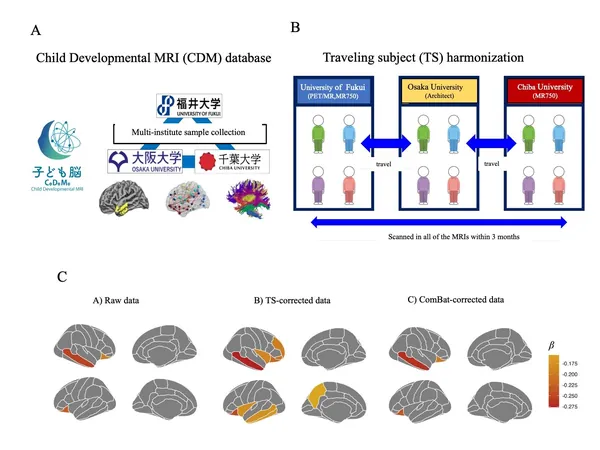
Shocking Study Reveals Dementia Patients Overprescribed Potent Antipsychotics
2025-09-16
Author: Li
Dementia Patients at Risk: Antipsychotic Use Exceeds Safety Guidelines
A groundbreaking study has uncovered alarming practices surrounding the treatment of dementia patients, revealing that many are being prescribed powerful antipsychotic drugs beyond recommended limits.
Researchers found that not only are these medications being administered for longer periods than the guidelines suggest, but dosages often exceed the recommended amounts. Stopping and then restarting these prescriptions has become a troublingly common practice.
When Are Antipsychotics Appropriate?
While antipsychotics can mitigate severe agitation or distress in dementia patients, the National Institute of Health and Care Excellence (NICE) strictly advises their use under specialist supervision only for these acute symptoms.
Study Highlights Significant Discrepancies
The analysis, conducted by experts from University College London (UCL), reviewed records from nearly 10,000 dementia patients aged 60 to 85 who started antipsychotic treatment between 2000 and 2023. Shockingly, the study revealed that initial antipsychotic treatments lasted an average of seven months—far exceeding NICE's recommendation of just one to three months.
Moreover, around 18% of those prescribed these drugs received doses that were higher than the minimum effective amount. This raises serious concerns regarding patient safety and the adherence to clinical practice guidelines.
Key Insights from the Research
Dr. Juan Carlos Bazo-Alvarez from UCL emphasized, "The data spans nearly two decades, showing that many individuals with dementia remain on antipsychotics significantly longer than advised, with a frequent pattern of alternating between stopping and restarting treatment.
He noted that understanding these trends can empower healthcare providers to make safer and more personalized decisions for their patients.
The Startling Recovery Rates
Among those started on a moderate to high dose, about 29% maintained that dosage throughout their first year of treatment. Even more concerning, over half of the patients who ceased taking the medication ended up restarting it later.
A Call for Change in Clinical Guidelines
Professor Irene Petersen, also from UCL, pointed out the significant gulf between what clinical guidelines dictate and real-world prescribing practices. "It may be time to re-evaluate these guidelines to ensure the safety and well-being of dementia patients." This study raises critical questions about the management of dementia and highlights an urgent need for reform in prescriptive practices.



 Brasil (PT)
Brasil (PT)
 Canada (EN)
Canada (EN)
 Chile (ES)
Chile (ES)
 Česko (CS)
Česko (CS)
 대한민국 (KO)
대한민국 (KO)
 España (ES)
España (ES)
 France (FR)
France (FR)
 Hong Kong (EN)
Hong Kong (EN)
 Italia (IT)
Italia (IT)
 日本 (JA)
日本 (JA)
 Magyarország (HU)
Magyarország (HU)
 Norge (NO)
Norge (NO)
 Polska (PL)
Polska (PL)
 Schweiz (DE)
Schweiz (DE)
 Singapore (EN)
Singapore (EN)
 Sverige (SV)
Sverige (SV)
 Suomi (FI)
Suomi (FI)
 Türkiye (TR)
Türkiye (TR)
 الإمارات العربية المتحدة (AR)
الإمارات العربية المتحدة (AR)